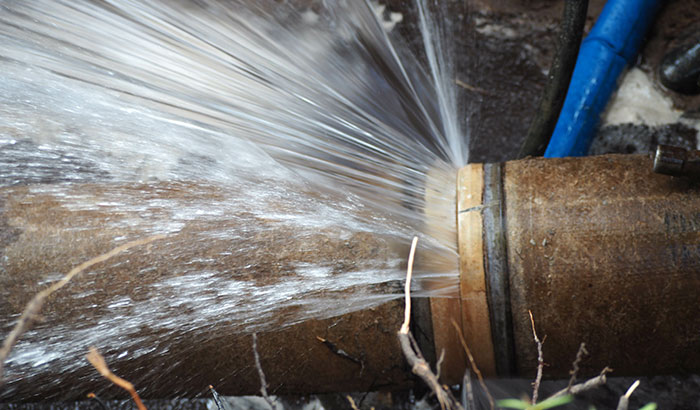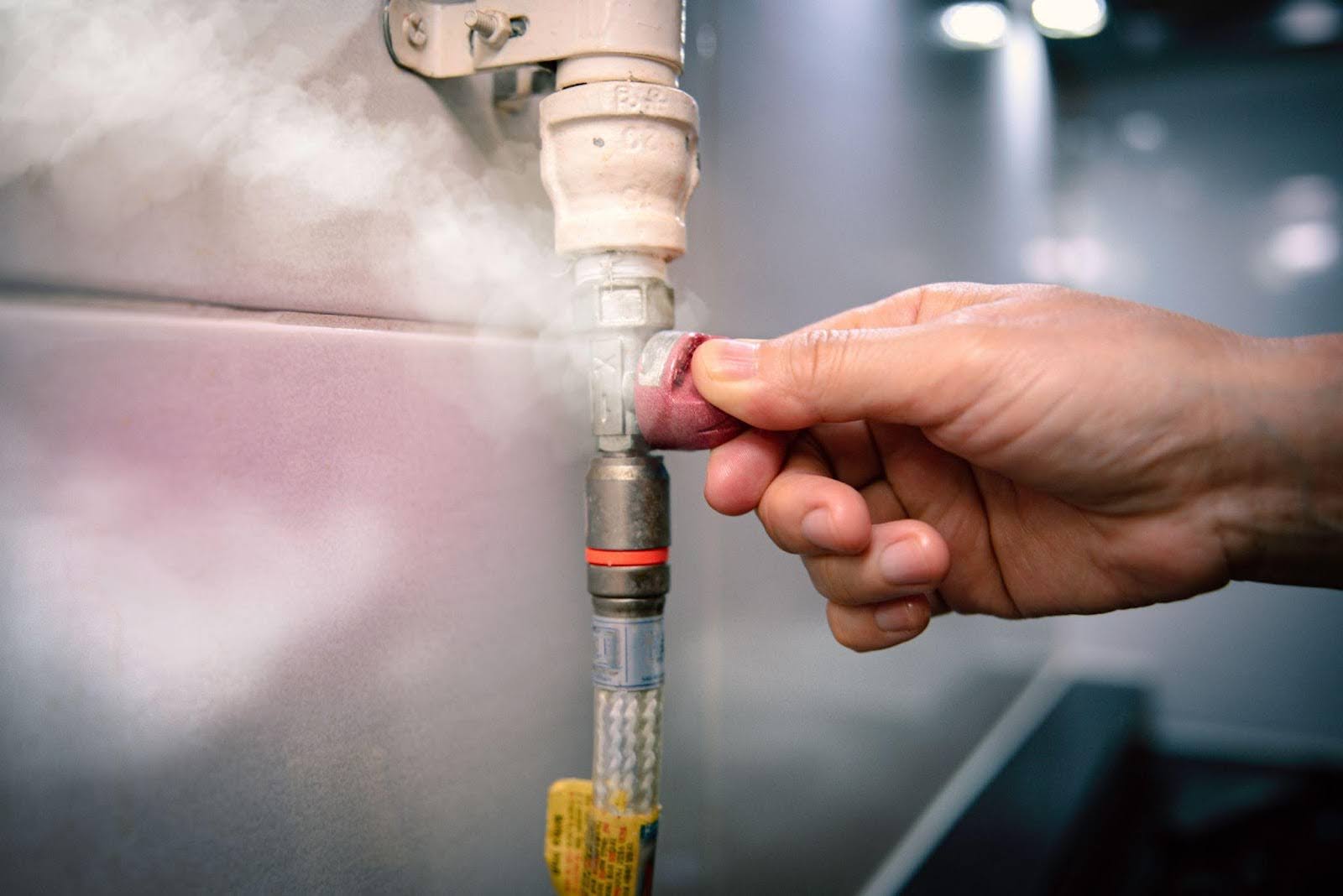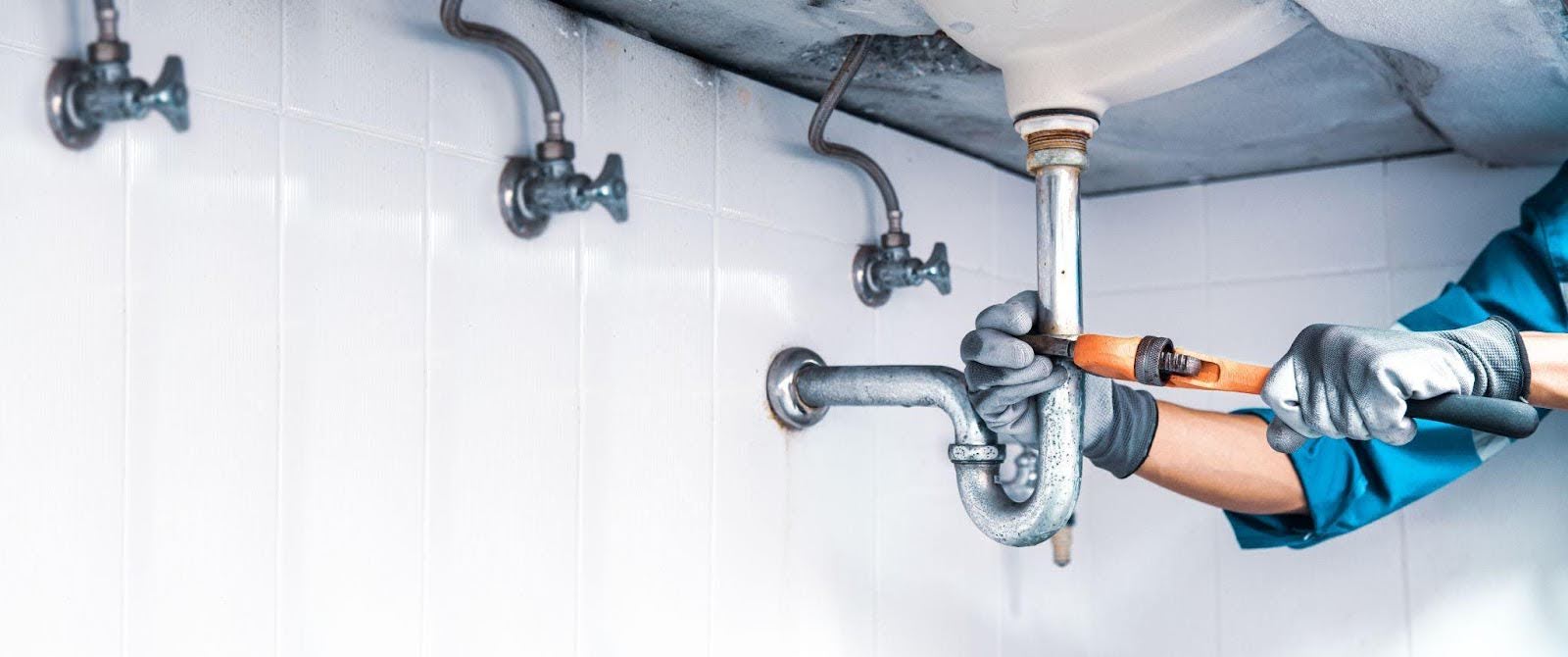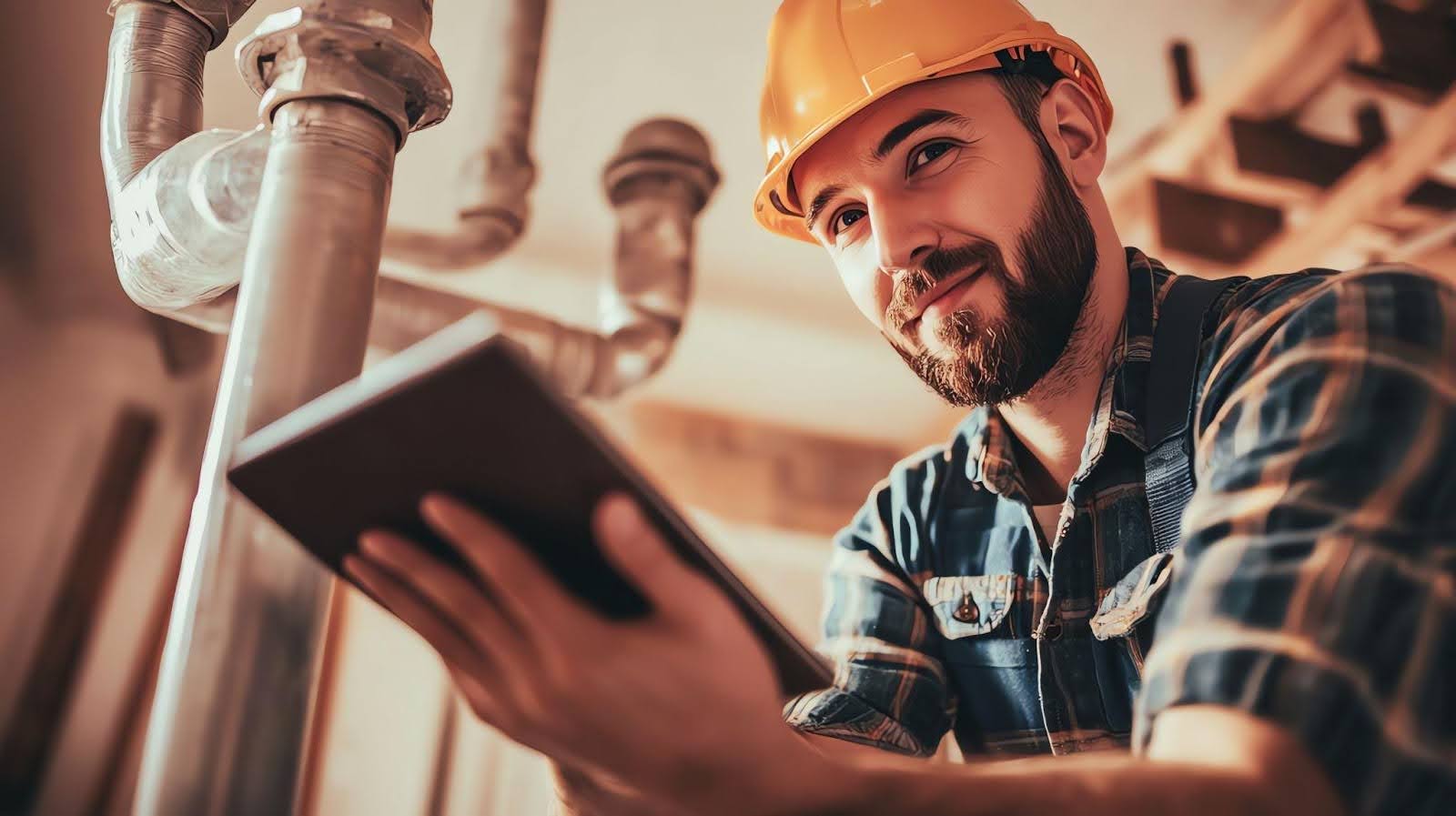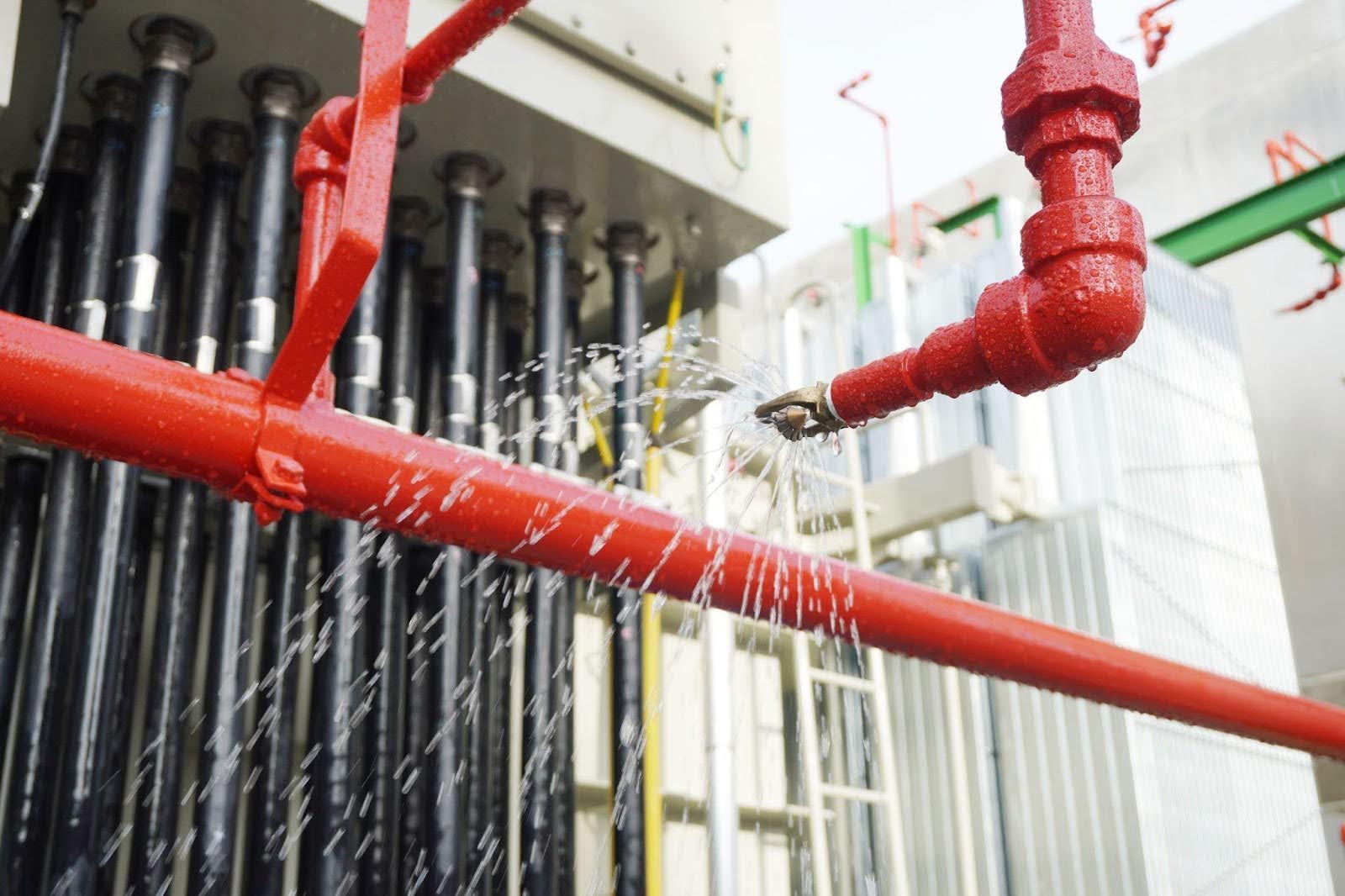When it comes to protecting your property, preventing burst pipes should be at the top of your priority list. The potential for extensive water damage and the subsequent costly repairs that come from burst pipes can be overwhelming; we’re here to provide you with valuable tips and insights to help you avoid these nightmares.
Just envision the scenario: a burst pipe flooding your living room or disrupting operations in your business. The mere thought is enough to send shivers down your spine, isn’t it? Burst pipes can occur due to various reasons, such as freezing temperatures or neglected maintenance.
However, the good news is that many of these disasters can be prevented with the right precautions and proactive measures.
By implementing a few simple steps, you can significantly reduce the risk of needing burst pipe repair. In this blog, we’ll go over a few different tips that empower you to protect your property and avoid the devastating effects of burst pipes. From insulating exposed pipes to maintaining proper heating, each suggestion is designed to fortify your plumbing system and prevent potential disasters.
Let’s get started!
What Causes Burst Pipes?
When looking at what causes burst pipes, there isn’t one answer. Here are some of the reasons the pipes in your home or business may burst:
- Freezing Temperatures
- Corrosion
- High Water Pressure
- Improper Installation
- Physical Damage
Now that you know what causes burst pipes, let’s look at a few things you can do to avoid burst pipes in your home.
1. Proper Insulation
The biggest reason pipes burst is freezing temperatures and rapid changes in weather. To keep your pipes from freezing, proper insulation is recommended. Insulating exposed pipes creates a protective barrier that helps maintain a consistent temperature and prevents them from freezing. Insulation acts as a safeguard, shielding your pipes from the frigid cold and reducing the risk of costly damages.
Whether you have pipes in basements, crawl spaces, or exterior walls, ensuring adequate insulation is a key preventive measure to consider.
To insulate your pipes effectively, there are various methods you can employ. One popular option is using foam pipe insulation sleeves, which are readily available at hardware stores. These sleeves are relatively easy to install and provide excellent insulation. Simply cut the insulation to the appropriate length, slit it lengthwise, and wrap it around the pipe, securing it in place with adhesive or tape.
2. Maintain Proper Heating
In addition to insulating your pipes, maintaining proper heating throughout your property is crucial for preventing burst pipes. Consistent heating helps keep the temperature inside your home or business at a level that prevents pipes from freezing and bursting.
To maintain proper heating, it’s important to set your thermostat to a suitable temperature, especially during colder seasons or when you’re away from the property for an extended period.
While energy-saving settings are beneficial, setting the temperature too low may expose your pipes to freezing conditions. It’s generally recommended to keep your thermostat set to a minimum of 55 degrees Fahrenheit (13 degrees Celsius) to help prevent pipes from freezing.
3. Allow Faucets to Drip in Freezing Temperatures
When temperatures plummet, one effective strategy for preventing burst pipes is to allow faucets to drip. Allowing a small, steady flow of water through faucets can help relieve pressure inside the pipes and reduce the likelihood of freezing.
It’s important to note that allowing faucets to drip is not a substitute for proper insulation and heating and is generally reserved for when your power goes out and the home isn’t being heated. It should be used in conjunction with other preventive measures to enhance the overall effectiveness of protecting your plumbing system.
Every home is unique, so we recommend speaking with local plumbing professionals to determine whether or not you should be dripping your faucets during times of extreme cold.
4. Avoid High Water Pressure
Moving away from the cold weather problems, it’s also important to avoid excessively high water pressure when trying to prevent burst pipes. Excessive water pressure can strain your plumbing system, leading to weakened pipes, leaks, and even bursts. By understanding and managing water pressure, you can protect your pipes and reduce the risk of costly water damage.
To avoid high water pressure, you can monitor and regulate the water pressure coming into your property. It’s possible to check your water pressure using a pressure gauge, which can be purchased at most hardware stores.
The average water pressure for a home can be anywhere from 30 to 80 pounds per square inch (psi). If the pressure exceeds 80 psi, your home could be violating code (depending on where you live). Either way, pressure above 80 psi has the potential to damage your pipes and cause a mess for you and your home.
If you suspect your water pressure is too high, you can test your home’s water pressure yourself (if you’re comfortable doing that), or you can contact a professional and have them do it for you. If the pressure is too high and poses a risk, they can lower it for you.
5. Perform Regular Maintenance
Regular maintenance on your plumbing system is fundamental in preventing burst pipes and ensuring its overall health and functionality. By dedicating time to proactive maintenance, you can catch potential issues early on, address any vulnerabilities, and keep your pipes in optimal condition, reducing the risk of unexpected failures.
One of the essential maintenance tasks is inspecting your pipes regularly for any signs of leaks, corrosion, or damage. Check both exposed and concealed pipes, paying close attention to joints, connections, and areas prone to moisture. If you notice any dampness, discoloration, or unusual smells, it may indicate a leak that needs immediate attention.
Consider scheduling professional plumbing inspections periodically. A trained plumber can thoroughly assess your entire plumbing system, identify potential vulnerabilities, and perform necessary repairs or maintenance. Professional inspections are particularly valuable for older properties or if you’ve recently encountered plumbing issues.
Ready to Solve Your Plumbing Problems? Contact Salisbury Plumbing
Ready to experience top-notch plumbing services and protect your property from the risks of burst pipes? Look no further than Salisbury Plumbing! Our skilled professionals are here to address all your plumbing needs with precision and expertise. Whether you require installation, maintenance, or burst pipe repair, we have you covered.
At Salisbury Plumbing, we understand that while preventing burst pipes is the goal, you can’t control the future. In the event that your home experiences a burst pipe, you can count on us to take care of the burst pipe repair quickly and efficiently.
Don’t let plumbing problems disrupt your daily life or put your property at risk. Take advantage of our prompt and reliable services by contacting Salisbury Plumbing today by calling us at 385-442-5687 or by using our online form. Our friendly and knowledgeable team is ready to listen to your concerns, answer your questions, and provide you with the right solutions tailored to your specific needs.
Whether it’s addressing potential issues that could lead to burst pipes or resolving other plumbing concerns, we’re here to help.
toto slot

